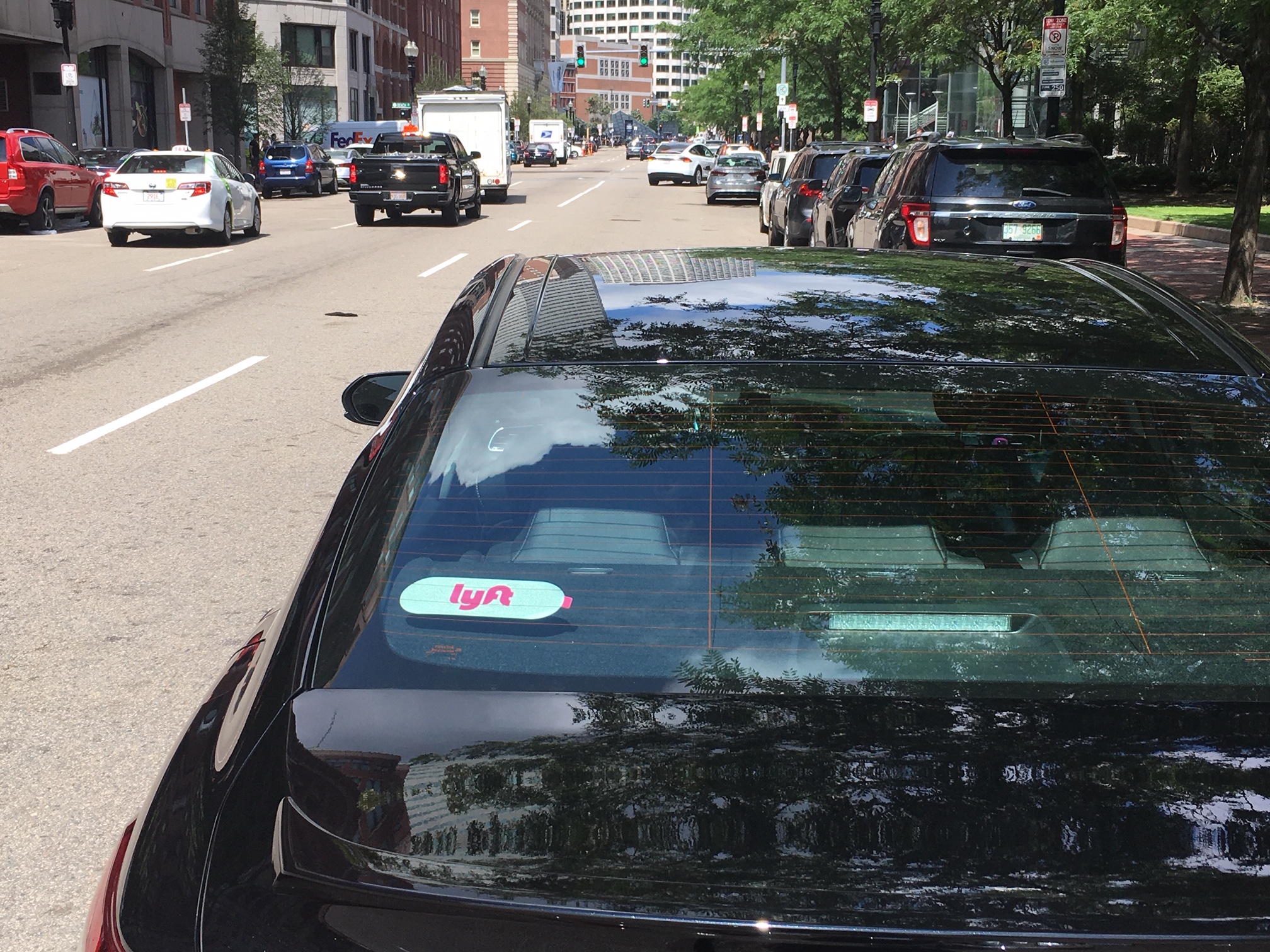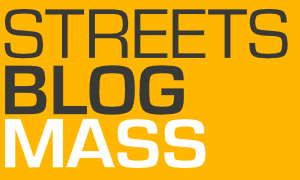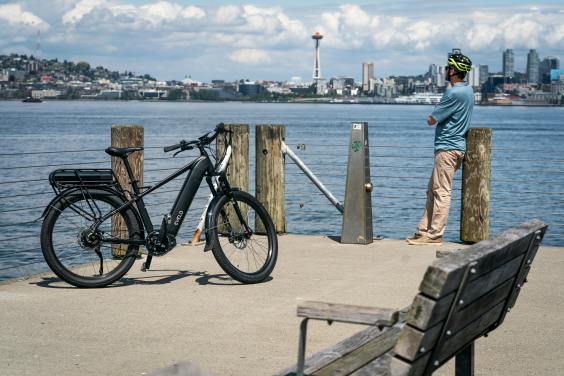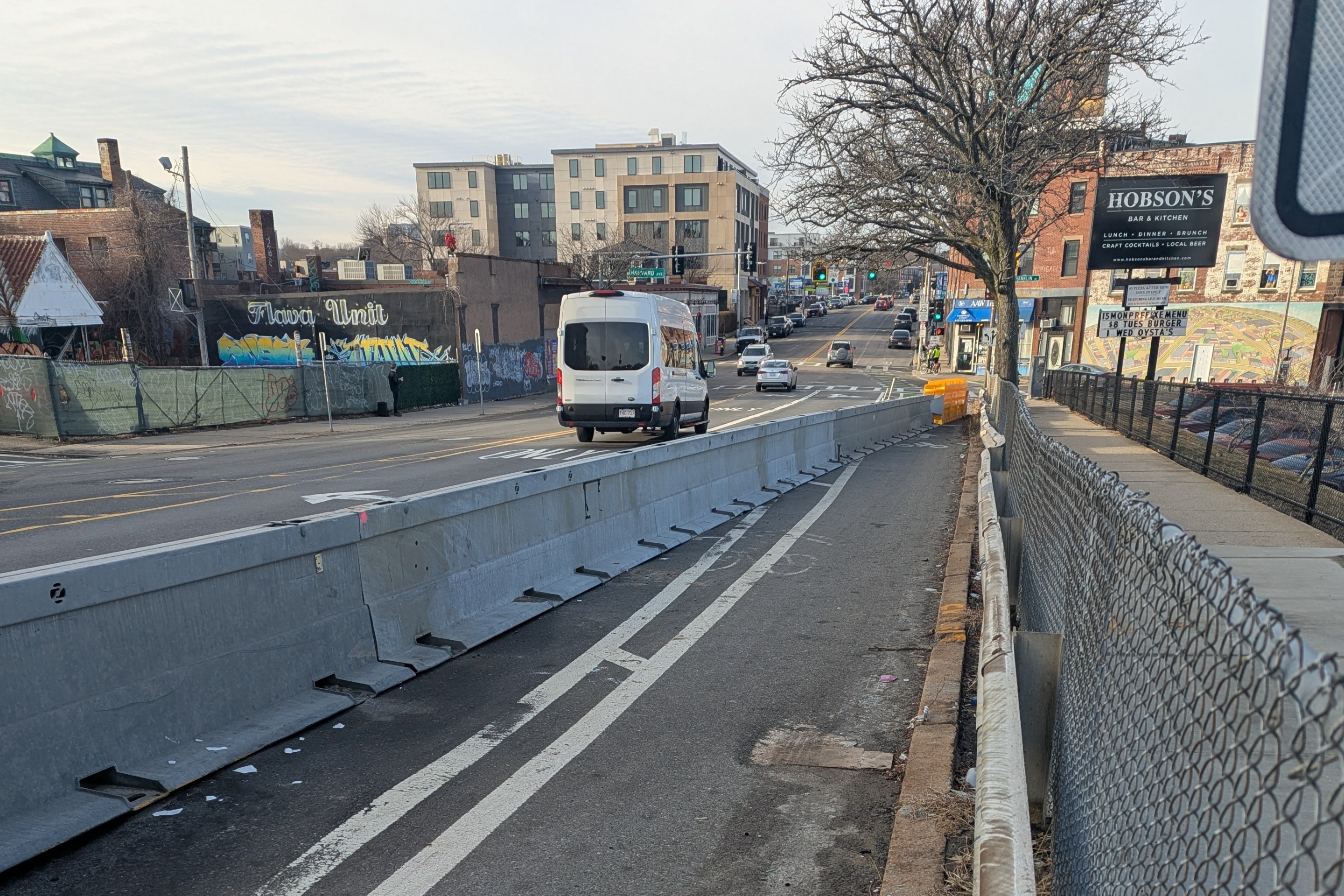A state planning agency forecasts that proposed new fees on Uber, Lyft, and other app-based ride-hailing companies could dramatically increase funding for local transportation improvements, in addition to providing millions of dollars in new revenue to the MBTA and regional transit authorities throughout the state.
Last month, legislators overwhelmingly passed a new transportation bond bill that would significantly raise fees on app-based ride-hailing services, with fees that would range from 40 cents per ride in shared carpool trips to $2.20 for solo rides in "luxury" vehicles.
Additionally, the state would charge a 20 cent "transit access fee" on any ride within the 14 cities and towns around Boston that comprise the core MBTA service area.
Planners from the Massachusetts Area Planning Council (MAPC) recently published estimates of how much revenue these new fees could generate. Even under a diminished ridership scenario from the pandemic, which estimates that Uber and Lyft are carrying roughly half as many fares as they did in 2019, these new fees could still produce $56 million a year for the state as a whole.
$5.9 million of those funds would benefit the MBTA, and another $5.9 million would go to regional transit authorities.
About a quarter of the funding – $13 million – would go to the municipalities where these rides originate, and most of the rest would go into the Commonwealth Transportation Fund, which funds MassDOT as well as transit programs and projects across the entire state.
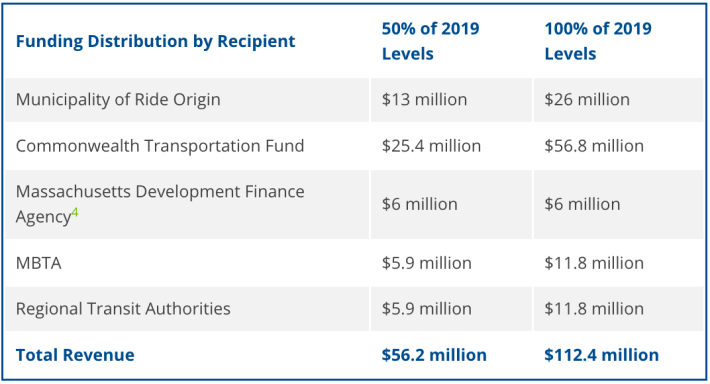
If ridership on Uber and Lyft rebounds to pre-pandemic levels, the new fee structure could generate twice as much revenue – approximately $112 million a year in total.
The state's existing fee on these services is 20 cents per ride, and the revenue is split evenly between the state and the municipalities where rides originate.
Historically, municipalities have used their share of those fees to finance local transportation improvements, including quick-build safety projects and small transit services.
In 2018, Boston – the city where more than half of Uber and Lyft rides originate – collected $4.2 million in revenue from its 42 million Uber and Lyft trips that year. The Boston Transportation Department used those funds to build and repair sidewalks (with a focus on lower-income neighborhoods and areas with high rates of walking), design street safety improvements to advance its Vision Zero policy, and expand the Bluebikes network.
By comparison, MassDOT budgets about $10 million a year for similar projects for the entire state under its Complete Streets program.
The new fees aren't a done deal yet: although the transportation bond bill passed by an overwhelming majority in the Legislature, Governor Baker still hasn't signed the bill into law.
